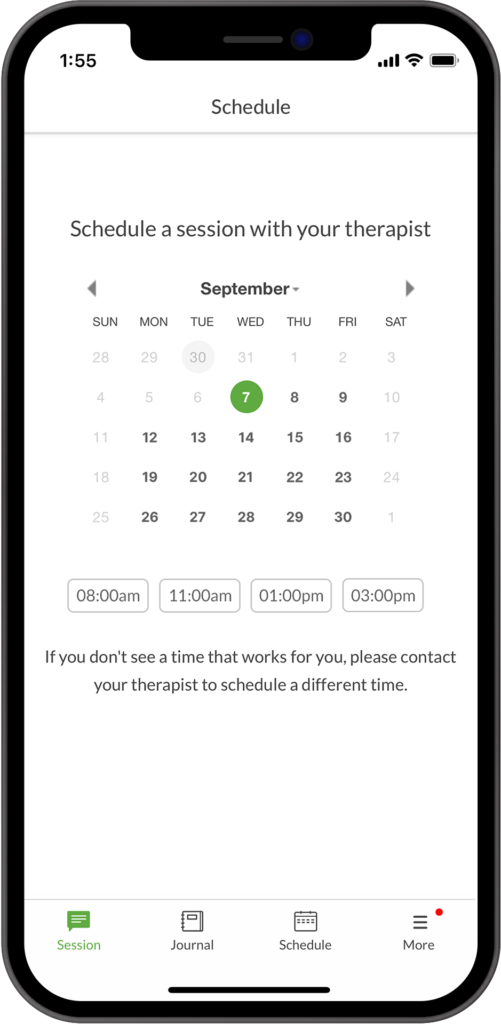We’ve all experienced it – that persistent inner voice that criticizes, doubts, and diminishes our worth, it’s that negative self-talk. Negative self-talk can be a formidable obstacle on our path to personal growth and well-being. Let’s just say it slows you down, gets in the way, and quite frankly derails you.

But where does this harmful internal dialogue come from, and more importantly, how can we silence it?
Let’s start by exploring the roots of negative self-talk and effective strategies to cultivate a more positive inner narrative and self-dialogue.
Table of Contents
Understanding Negative Self-Talk
Negative self-talk is the inner dialogue that undermines our confidence and self-esteem. It’s the voice that says, “You’re not good enough,” “You’ll never succeed,” or “Why even bother trying?” This internal criticism can be subtle or overt, but its impact is always detrimental to our mental health and personal growth.
The Origins of Negative Self-Talk
The first thing to understand is that negative self-talk doesn’t just come out of nowhere. It’s shaped by various factors throughout our lives. Understanding these sources can be the first step in addressing and changing our internal dialogue.
1. Childhood Experiences
Our formative years play a crucial role in shaping our perception of ourselves. Criticism from parents, teachers, or peers can become internalized, forming the basis of our inner critic. Even well-intentioned but overly critical parenting can contribute to negative self-talk patterns.
Dr. Daniel Siegel, a prominent psychiatrist, emphasizes the impact of early relationships on brain development and self-perception. He notes that repeated negative interactions can wire the brain for self-criticism.
2. Societal and Cultural Influences
The society and culture we grow up in significantly influence our self-talk. Media portrayals of ‘ideal’ body types, success, and lifestyles can foster feelings of inadequacy when we inevitably fall short of these often unrealistic standards.
A study published in the Journal of Experimental Social Psychology found that exposure to idealized images in media led to increased negative self-talk, particularly among young adults.
3. Past Failures and Disappointments
Experiences of failure or disappointment can leave lasting imprints on our psyche. Without proper processing and perspective, these experiences can fuel a cycle of negative self-talk, making us more risk-averse and less confident in our abilities.
4. Stress and Anxiety
High-stress environments or chronic anxiety can exacerbate negative self-talk. When we’re under pressure, our minds often default to worst-case scenarios and self-doubt as a misguided form of self-protection.
5. Perfectionism
Striving for perfection might seem admirable, but it often leads to harsh self-criticism. Perfectionists tend to have an “all or nothing” mindset, viewing anything less than perfect as a failure.
6. Cognitive Distortions
Our brains are prone to cognitive distortions – irrational thought patterns that reinforce negative thinking. Common distortions include overgeneralization (applying one negative experience to all situations) and catastrophizing (assuming the worst possible outcome).




Strategies to Prevent and Overcome Negative Self-Talk
Now that we understand the origins of negative self-talk, let’s consider strategies to prevent and counteract it.
1. Practice Mindfulness
Mindfulness involves observing our thoughts without judgment. By becoming aware of our negative self-talk patterns, we can create space between the thought and our reaction to it.
Try this: Set aside 5-10 minutes daily to sit quietly and observe your thoughts. Notice any negative self-talk without trying to change it. Simply acknowledging these thoughts can reduce their power over time.
2. Challenge Your Inner Critic
When you notice negative self-talk, challenge it. Ask yourself:
- Is this thought based on facts or feelings?
- Would I say this to a friend?
- What evidence do I have for and against this thought?
This cognitive restructuring technique, central to Cognitive Behavioral Therapy (CBT), can help reframe negative thoughts into more balanced, realistic ones.
3. Cultivate Self-Compassion
Self-compassion involves treating yourself with the same kindness you’d offer a good friend. Dr. Kristin Neff, a pioneer in self-compassion research, suggests three components:
- Self-kindness: Being gentle and understanding with yourself
- Common humanity: Recognizing that everyone struggles and makes mistakes
- Mindfulness: Maintaining a balanced awareness of your emotions
Practice this by speaking to yourself as you would to a loved one facing a similar situation.
4. Reframe Failures as Learning Opportunities
Instead of viewing failures as reflections of your worth, see them as valuable learning experiences. After a setback, ask yourself:
- What can I learn from this?
- How can I grow from this experience?
- What would I do differently next time?
This growth mindset, championed by psychologist Carol Dweck, can transform negative self-talk into constructive self-reflection. Be sure to download my Ultimate Self-Inquisition Guide if you want guidance and a powerful tool for self-reflection.
5. Surround Yourself with Positivity
The people and environments we surround ourselves with significantly impact our inner dialogue. Seek out supportive relationships and limit exposure to overly critical or negative influences.
6. Practice Gratitude
Regularly acknowledging the good in your life can shift your focus from perceived shortcomings to appreciation. Keep a gratitude journal, noting three things you’re grateful for each day.
7. Use Positive Affirmations
While it might feel awkward at first, positive affirmations can help rewire our brains for more positive self-talk. Choose affirmations that resonate with you and repeat them daily. For example:
- “I am capable and worthy of success.”
- “I embrace challenges as opportunities for growth.”
- “I am enough, just as I am.”
8. Seek Professional Help
If negative self-talk is significantly impacting your life, consider seeking help from a mental health professional. Therapies like CBT can provide powerful tools for changing negative thought patterns.



As you know I’m a huge proponent of Mental Wellness and ensuring we all get the help we need when we need it. And of course, I don’t want you just to get any help I want you to get the right help so I am now sponsored by BetterHelp.
BetterHelp is the world’s largest therapy service, and it’s 100% online.
BetterHelp offers a network of over 25,000 licensed and experienced therapists who can help you with a wide range of issues.
Just click on the link below, answer a few questions, and get matched with a therapist from the network.
One of the most amazing features of BetterHelp, if you don’t jive with your therapist you can switch to a new one that’s a better fit for you any time free of charge.
With BetterHelp, you get the same professionalism and quality you expect from in-office therapy, but with a therapist who is custom-picked for you, more scheduling flexibility, and at a more affordable price.
The Journey to Positive Self Talk
Transforming negative self-talk into a more positive inner dialogue is a journey, not a destination. It requires patience, practice, and self-compassion. Remember, the goal isn’t to eliminate all negative thoughts – that’s unrealistic. Instead, aim to create a more balanced, nurturing internal environment.
As you work on cultivating more positive self-talk, celebrate your progress, no matter how small. Each time you catch and challenge a negative thought, you’re rewiring your brain for more positive patterns.
In the words of motivational speaker Zig Ziglar, “You are the only person on earth who can use your ability.” Don’t let negative self-talk hold you back from realizing your full potential. With awareness and practice, you can transform your inner critic into your biggest cheerleader, paving the way for greater self-acceptance, resilience, and personal growth.
Remember, you’re not alone in this journey. We all face negative self-talk at times. But with understanding and the right tools, we can rise above it, embracing a more compassionate and empowering relationship with ourselves.
Comments +
What Causes Negative Self-Talk & How To Prevent It
Mental Health, Mental Wellness, Soul Food